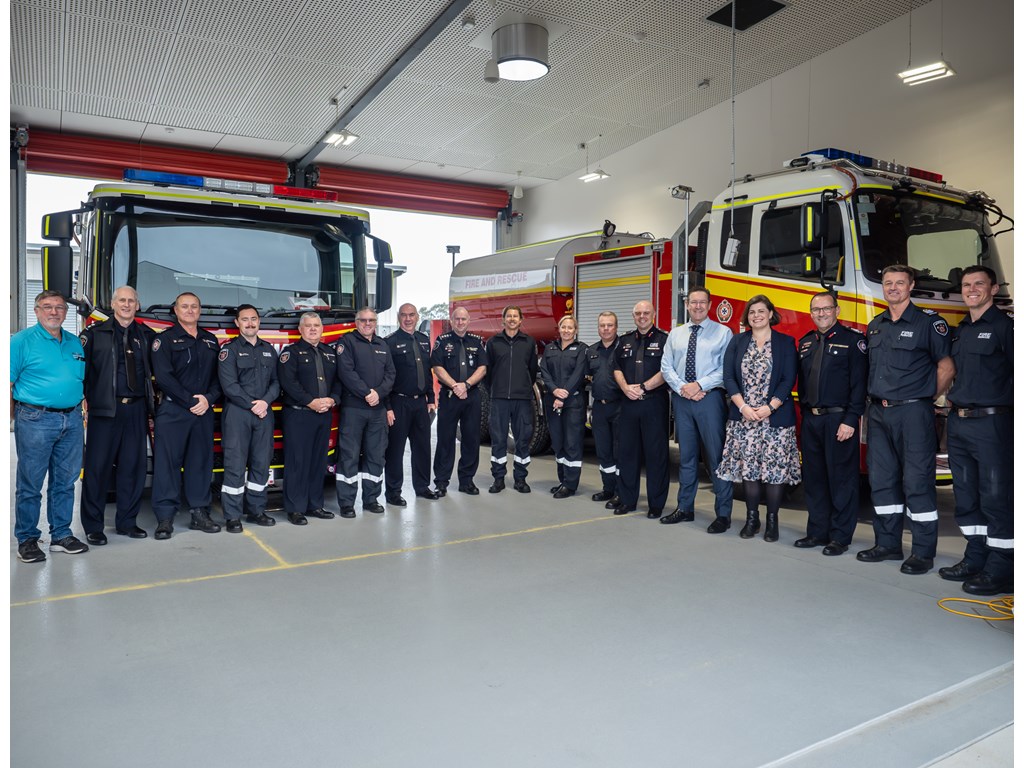The Hon Julie Collins MP
Minister for Housing
Minister for Homelessness
Minister for Small Business
The Hon Justine Elliot MP
Assistant Minister for Social Services
Assistant Minister for the Prevention of Family Violence
Member for Richmond
The Community Housing Industry Association (CHIA) today launched its Domestic and Family Violence (DFV) Standards and Toolkit, a sector-led initiative to help the community housing sector better identify and support tenants who are victim-survivors of gender-based violence.
Assistant Minister for the Prevention of Family Violence, Justine Elliot, today launched the new standard in Sydney, highlighting the importance of safe and affordable housing to women and children experiencing gender-based violence, following the recent Budget announcement of $1 billion in funding for crisis and transitional accommodation for women and children escaping violence, and young people.
“We know that family, domestic and sexual violence is the main reason women and children leave their homes in Australia, and is the leading cause of homelessness for children,” Assistant Minister Elliot said.
“The Albanese Government understands that unaffordable or insecure housing is a major barrier for victim-survivors to re-establish their lives after leaving a violent situation, and a key consideration in their decision to leave.”
“It is crucial we do what we can to ensure women and children experiencing gender-based violence have access to housing they feel safe and secure in, and I commend the work of CHIA in developing these standards to best identify and support tenants experiencing violence.”
Minister for Housing and Minister for Homelessness, Julie Collins, said last week’s Budget included important new decisions.
“We are directing $1 billion from the National Housing Infrastructure Facility to specifically support crisis and transitional accommodation for women and children fleeing domestic violence, and for youth.”
“This builds on the significant commitments we have already made to help support women and children.”
CHIA is the national peak industry body for registered and charitable providers of social and affordable rental housing.
Funding in last week’s Budget brings the Albanese Government’s total investment in women’s safety to over $3.4 billion – this includes over $925 million to establish the permanent Leaving Violence Program which provides $5,000 in financial support, as well as risk assessment, safety planning and referral services.
Last week’s Budget also provided for a new $9.3 billion 5-year National Agreement on Social Housing and Homelessness for states and territories to combat homelessness, provide crisis support and build and repair social housing. This includes a doubling of the Commonwealth homelessness funding component to $400 million every year, matched by states and territories.
The Albanese Labor Government will also deliver an additional 720 Safe Places under the Safe Places Emergency Accommodation Program Inclusion Round, which funds the renovation, building and purchase of new crisis accommodation. Once complete, the Safe Places program will provide up to 1,500 safe places for women and children experiencing domestic and family violence.
The Albanese Labor Government’s $10 billion Housing Australia Future Fund represents the single largest investment to support social and affordable housing in more than a decade and will support 30,000 new social and affordable rental homes over its first five years.
The Government has committed that 4,000 homes will be built for women and children impacted by domestic and family violence from this Fund, and older women at risk of homelessness.
A further $100 million from the Housing Australia Future Fund will build crisis and transitional housing options for women and children impacted by family and domestic violence, and older women at risk of homelessness.
The Albanese Labor Government is actively working to support women and children leaving their homes actions under Safe and Supported: the National Framework for Protecting Australia’s Children 2021-31, the National Plan to End Violence against Women and Children 2022-32, and development of the National Housing and Homelessness Plan.








